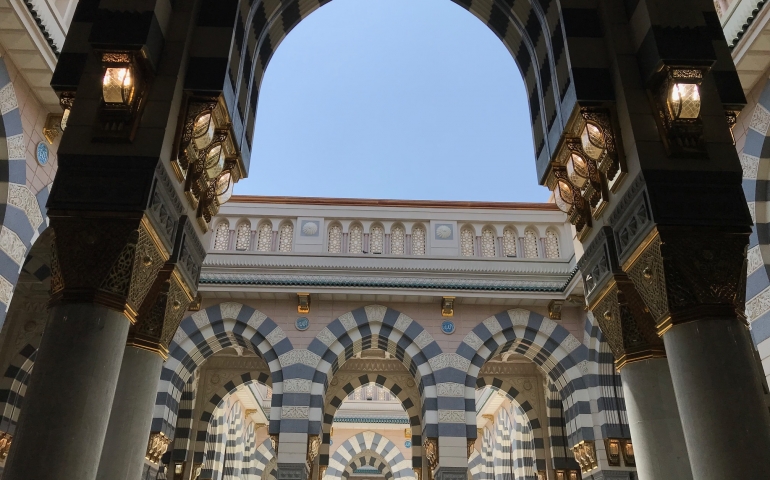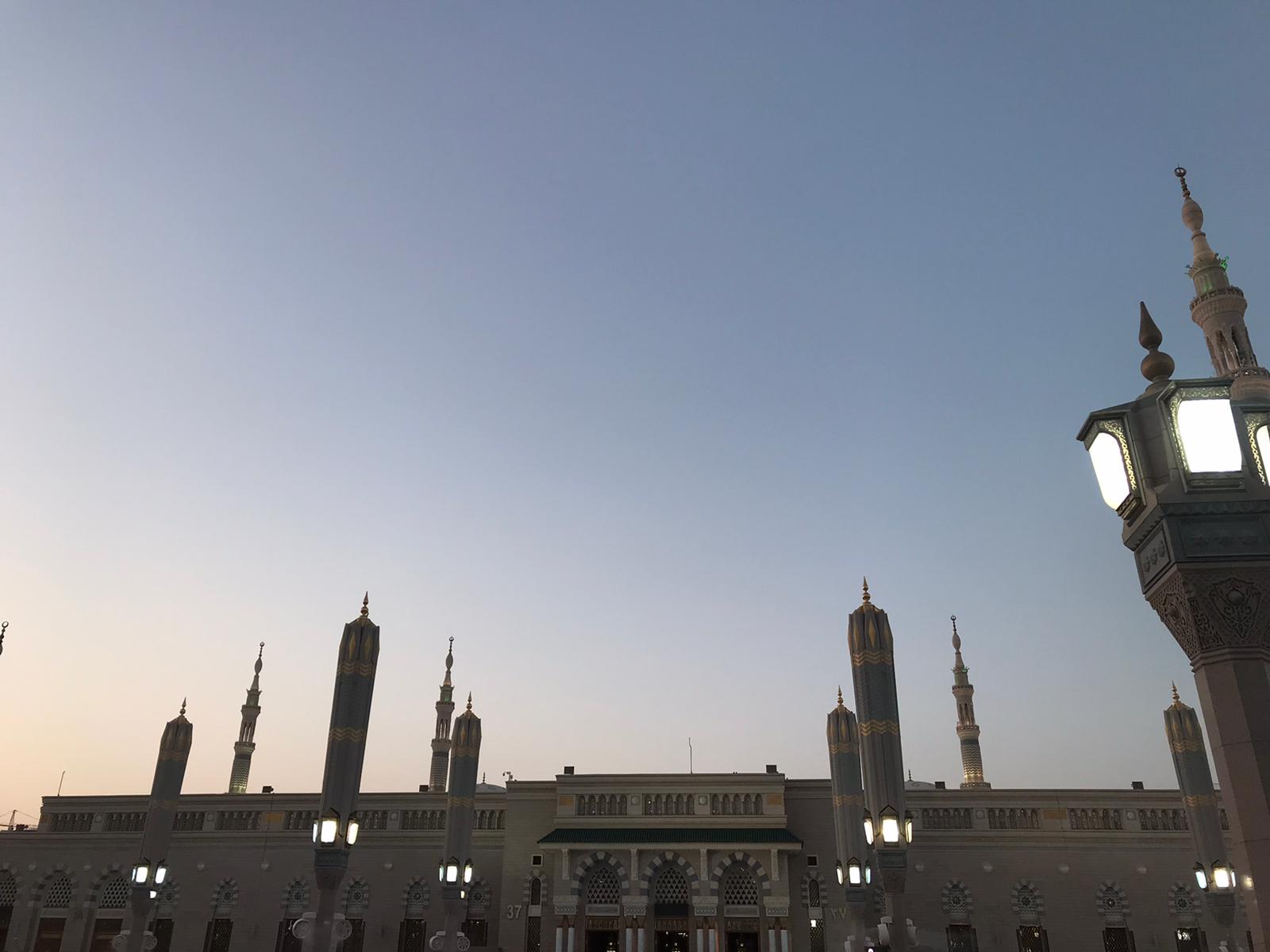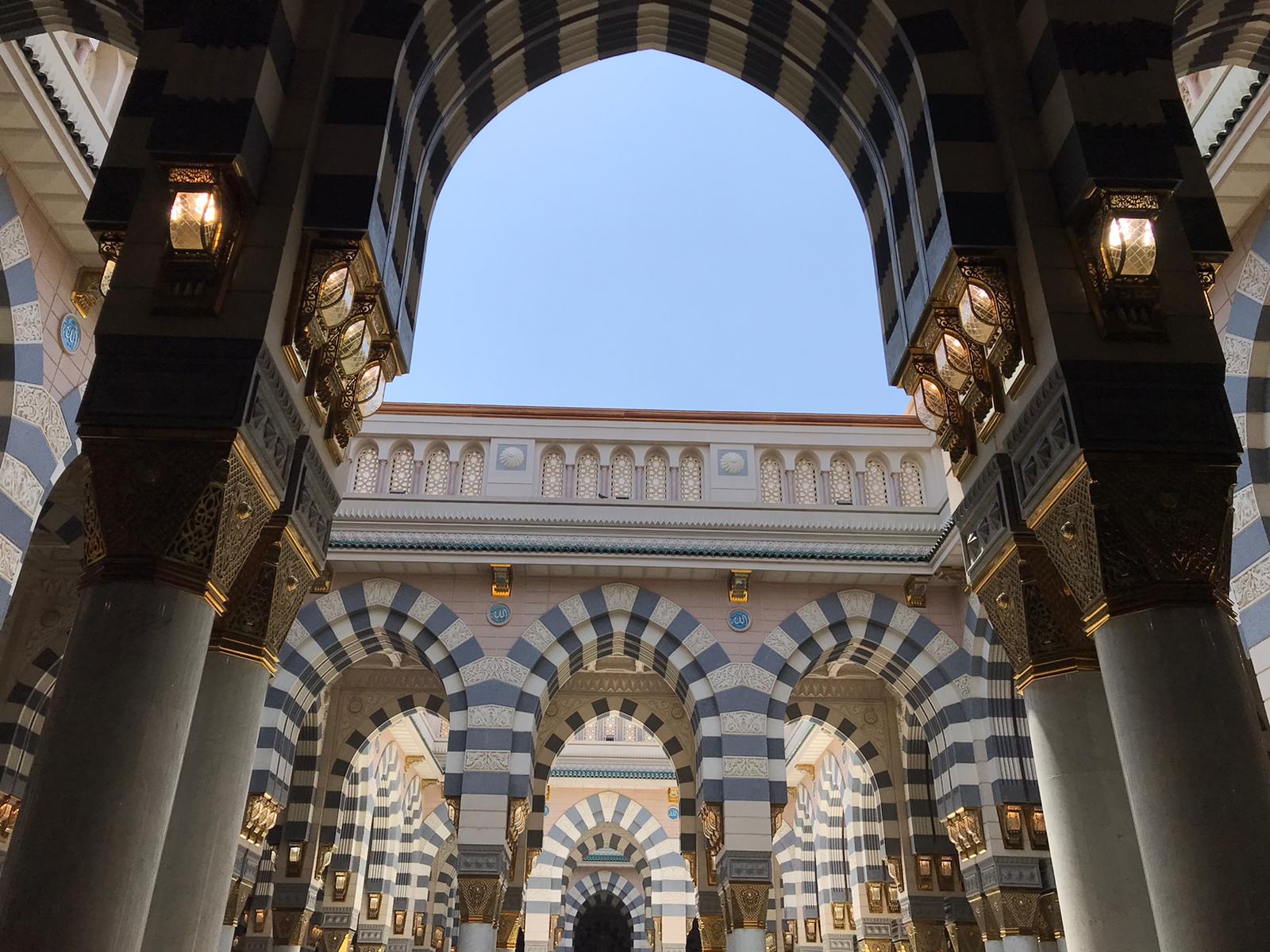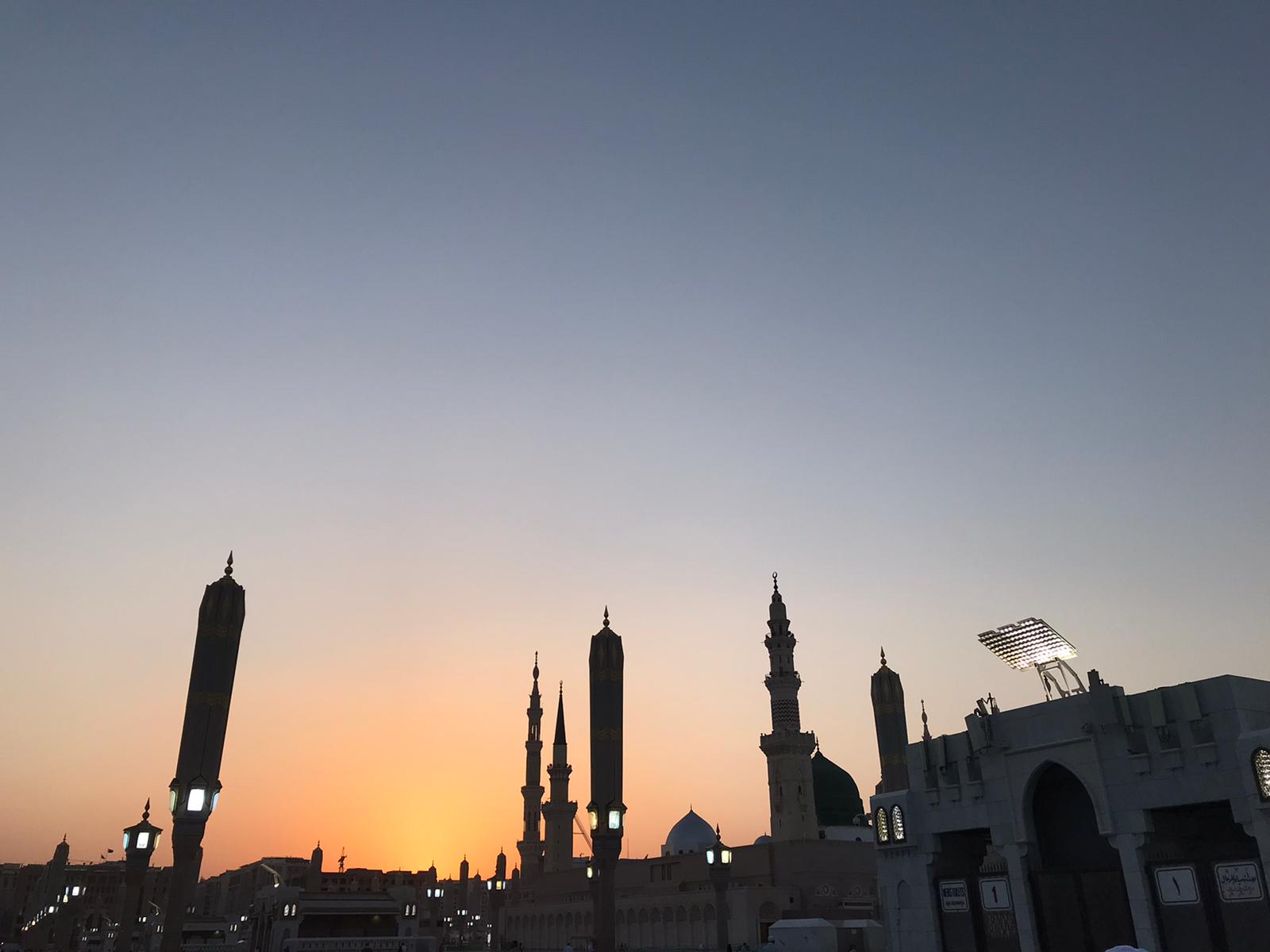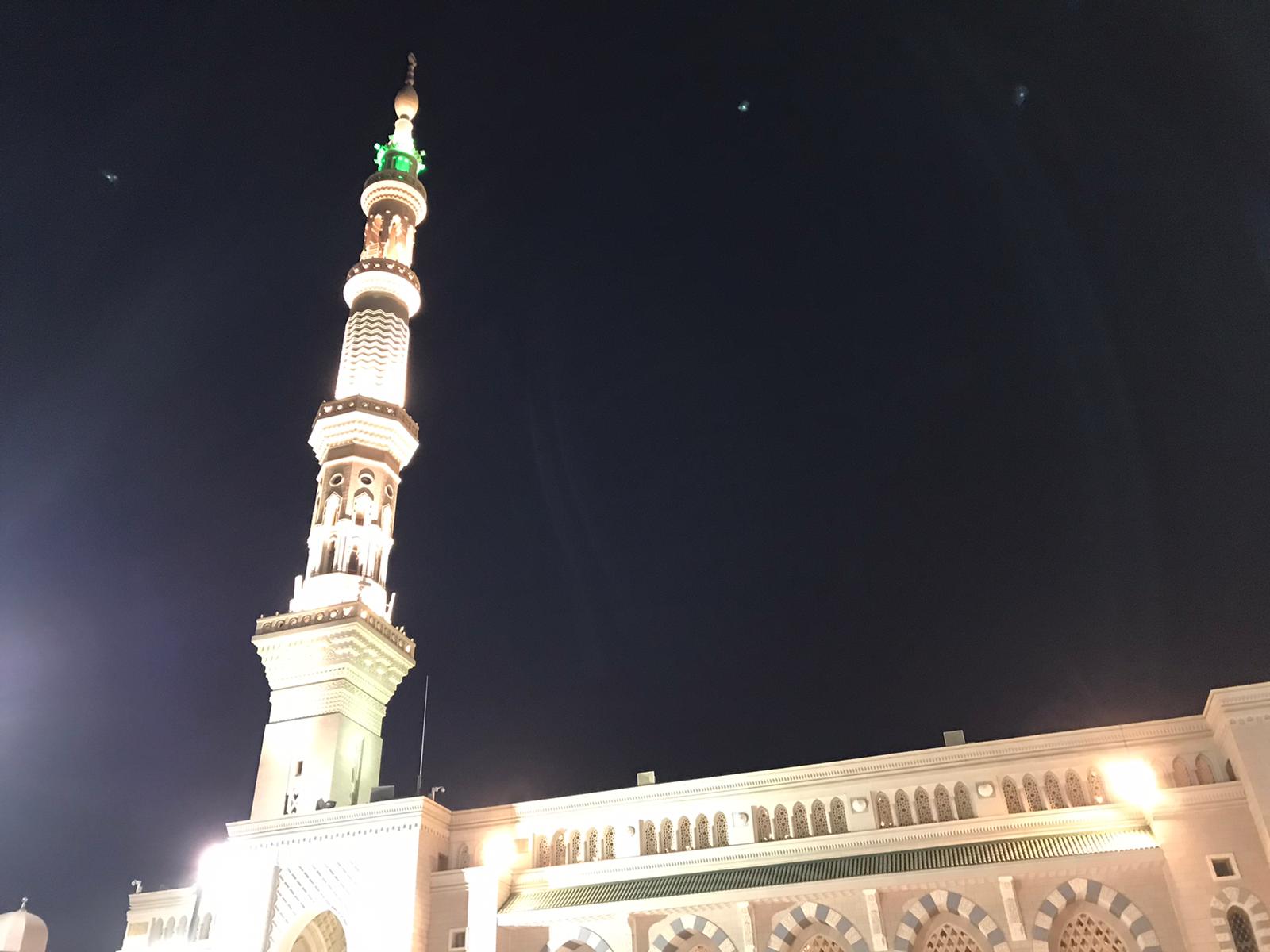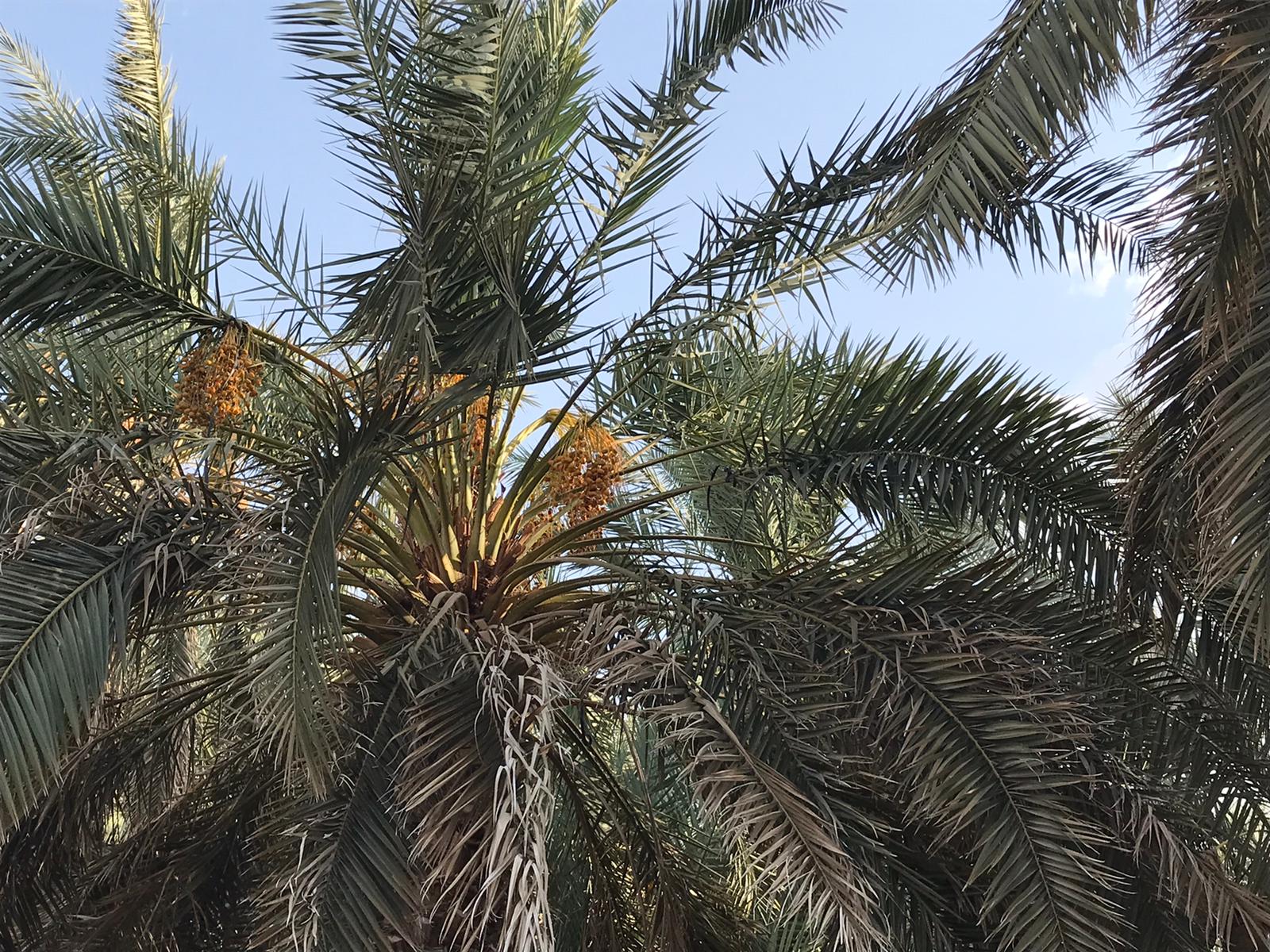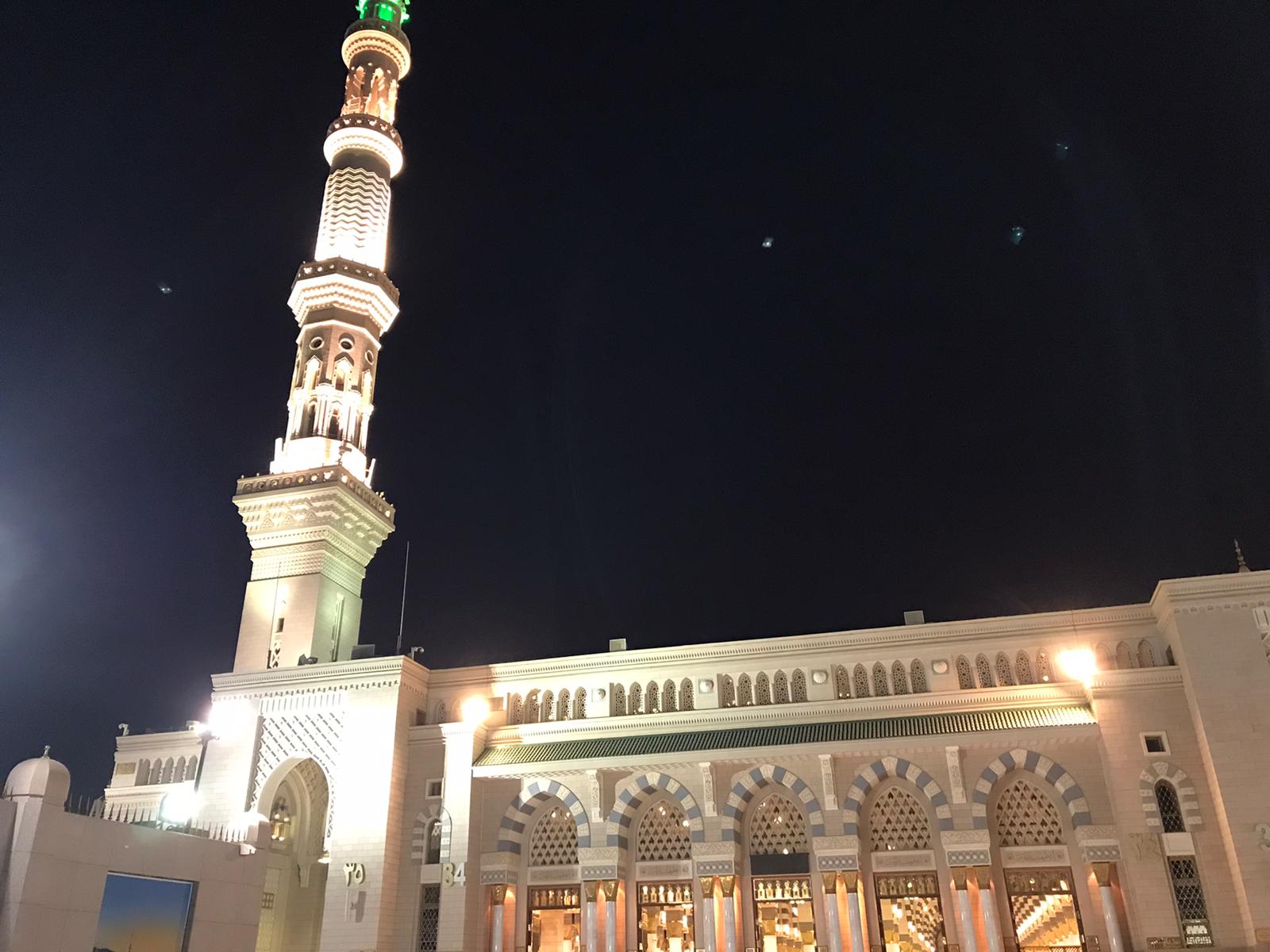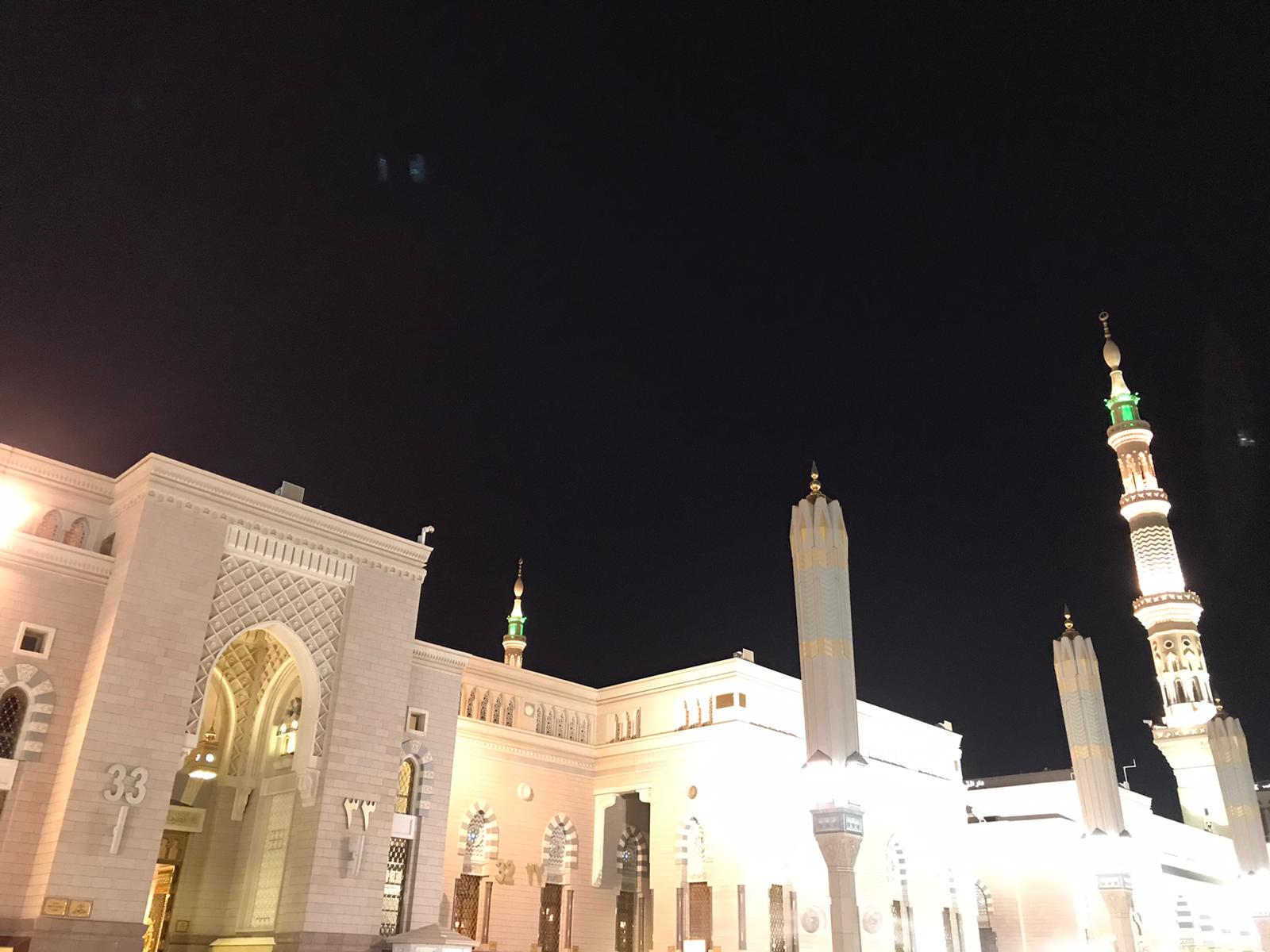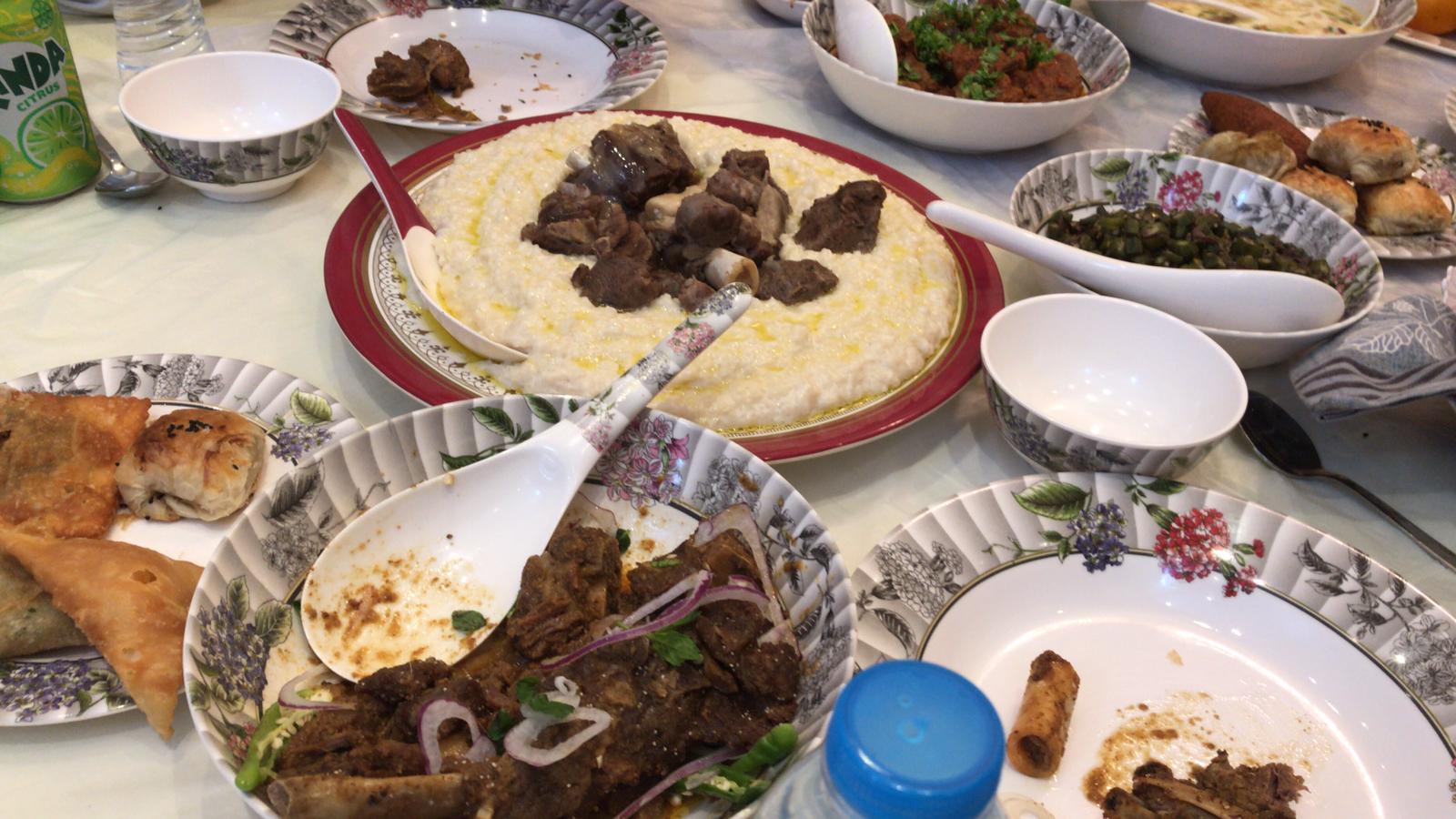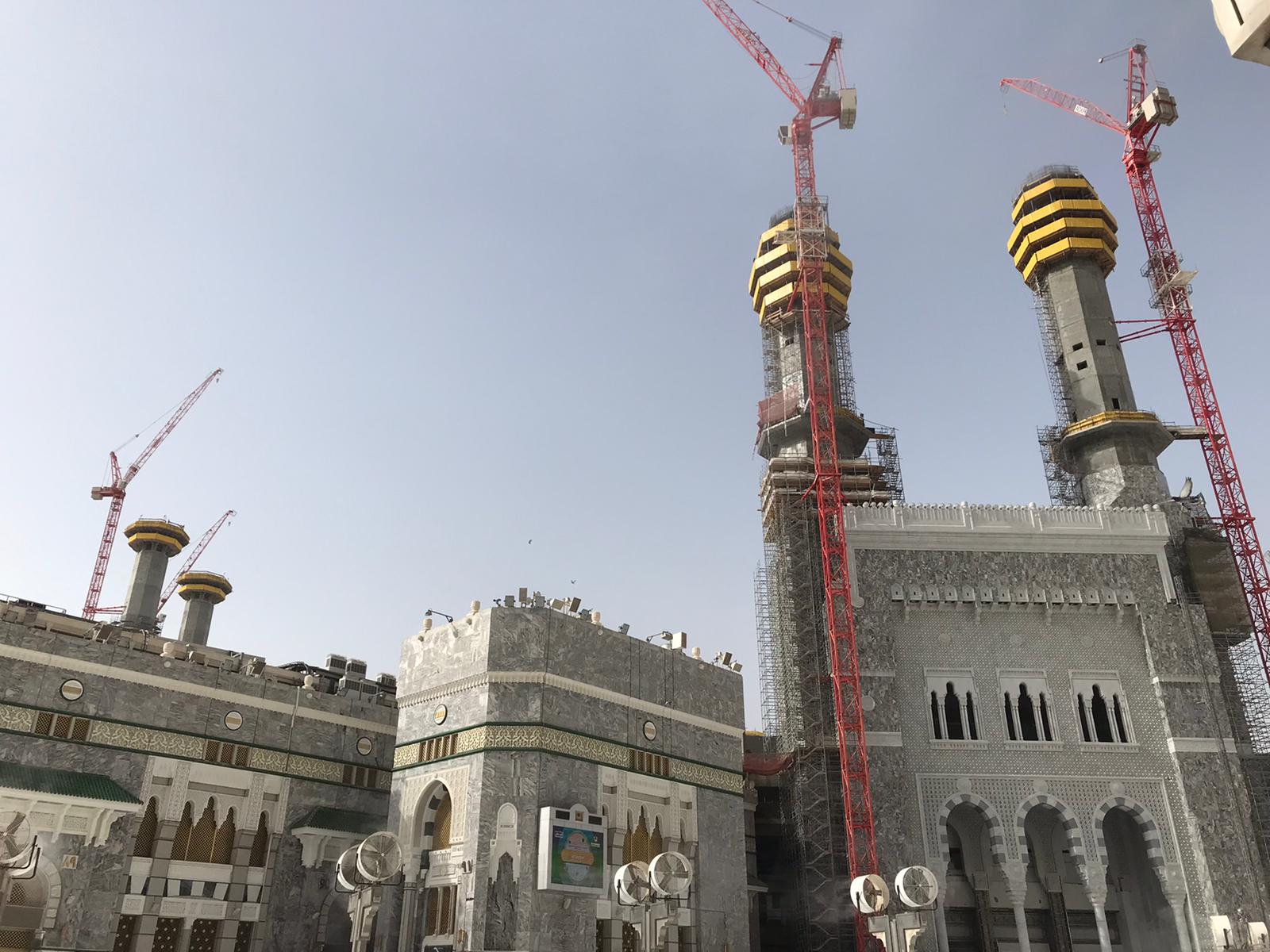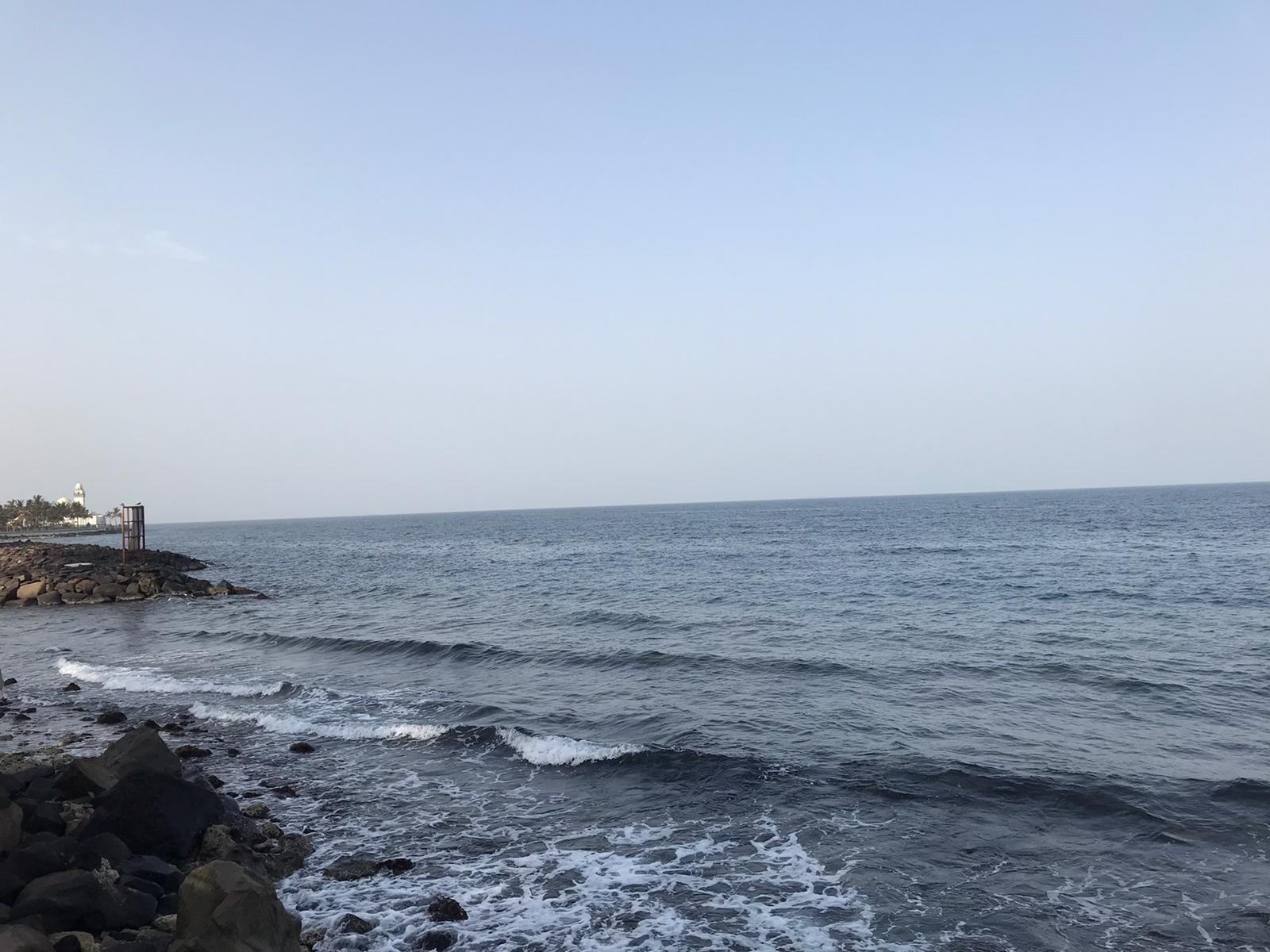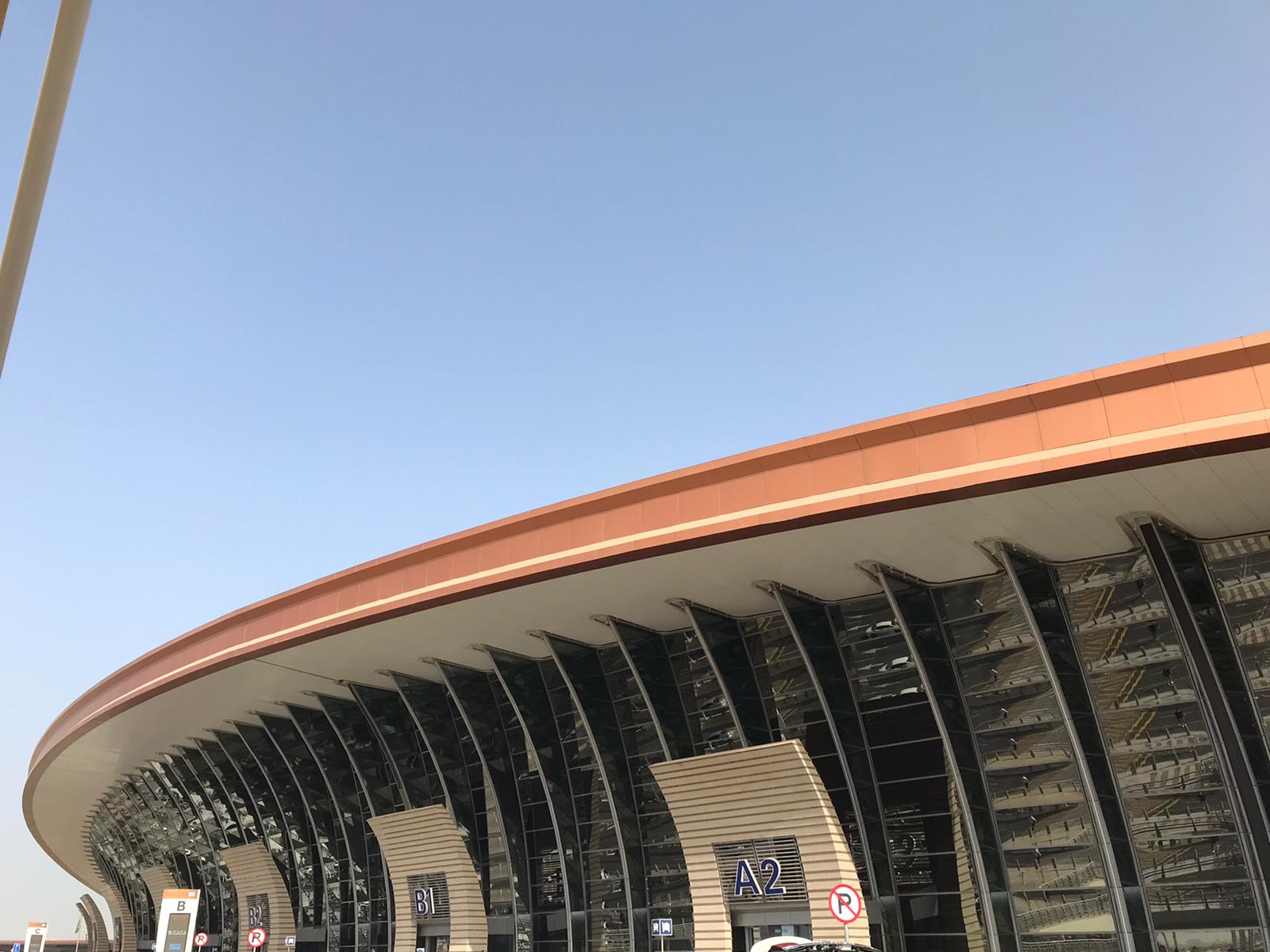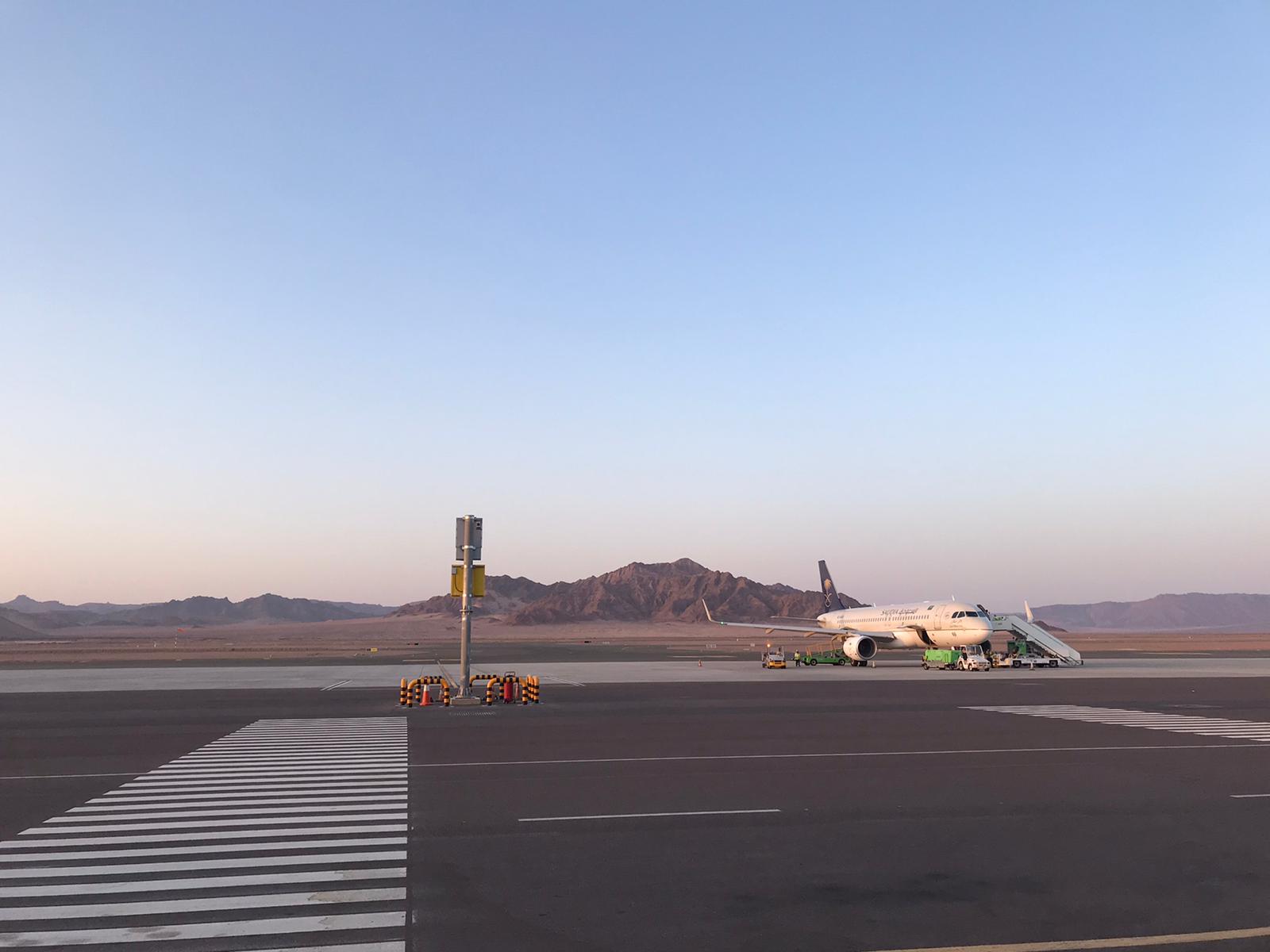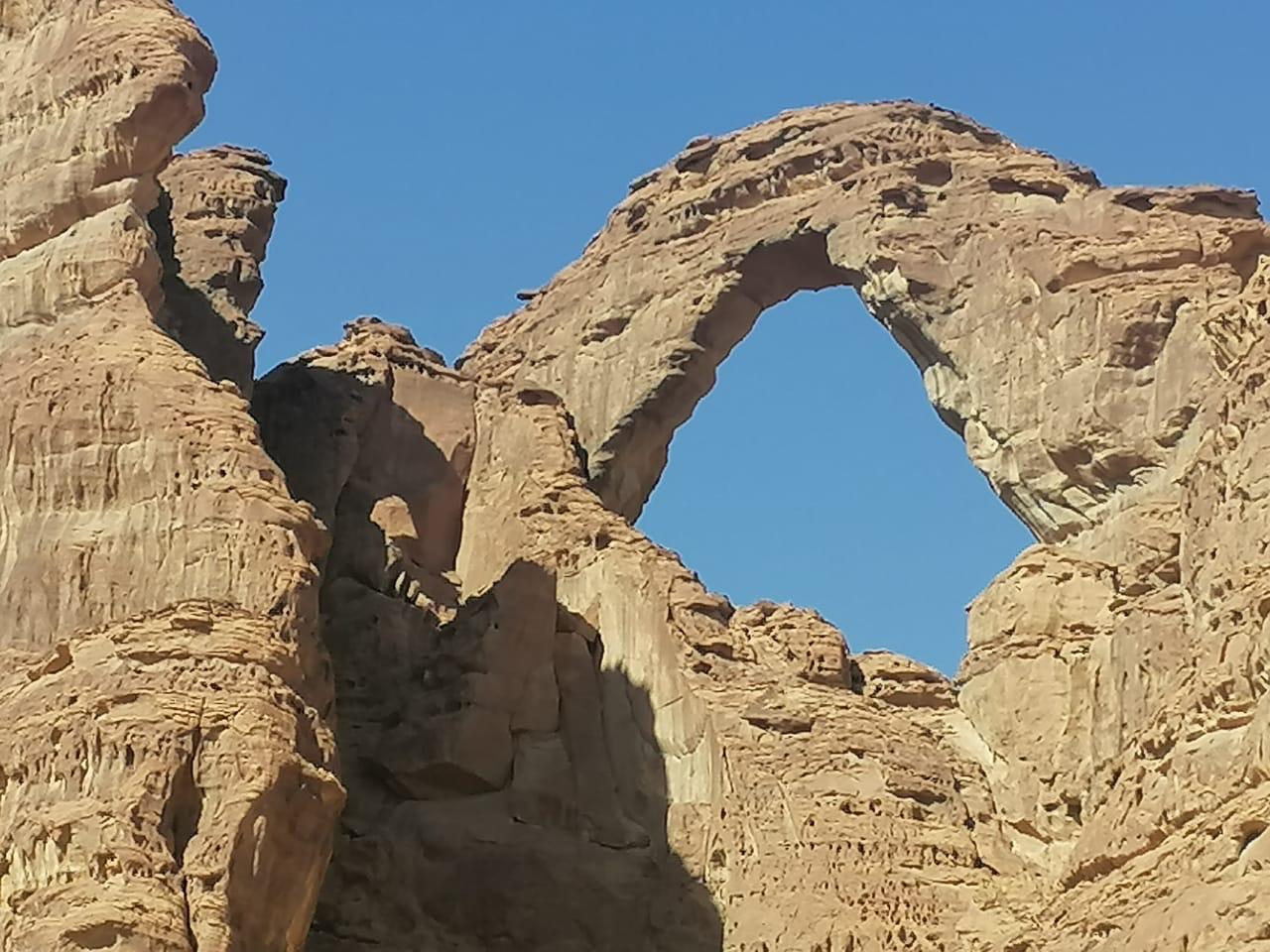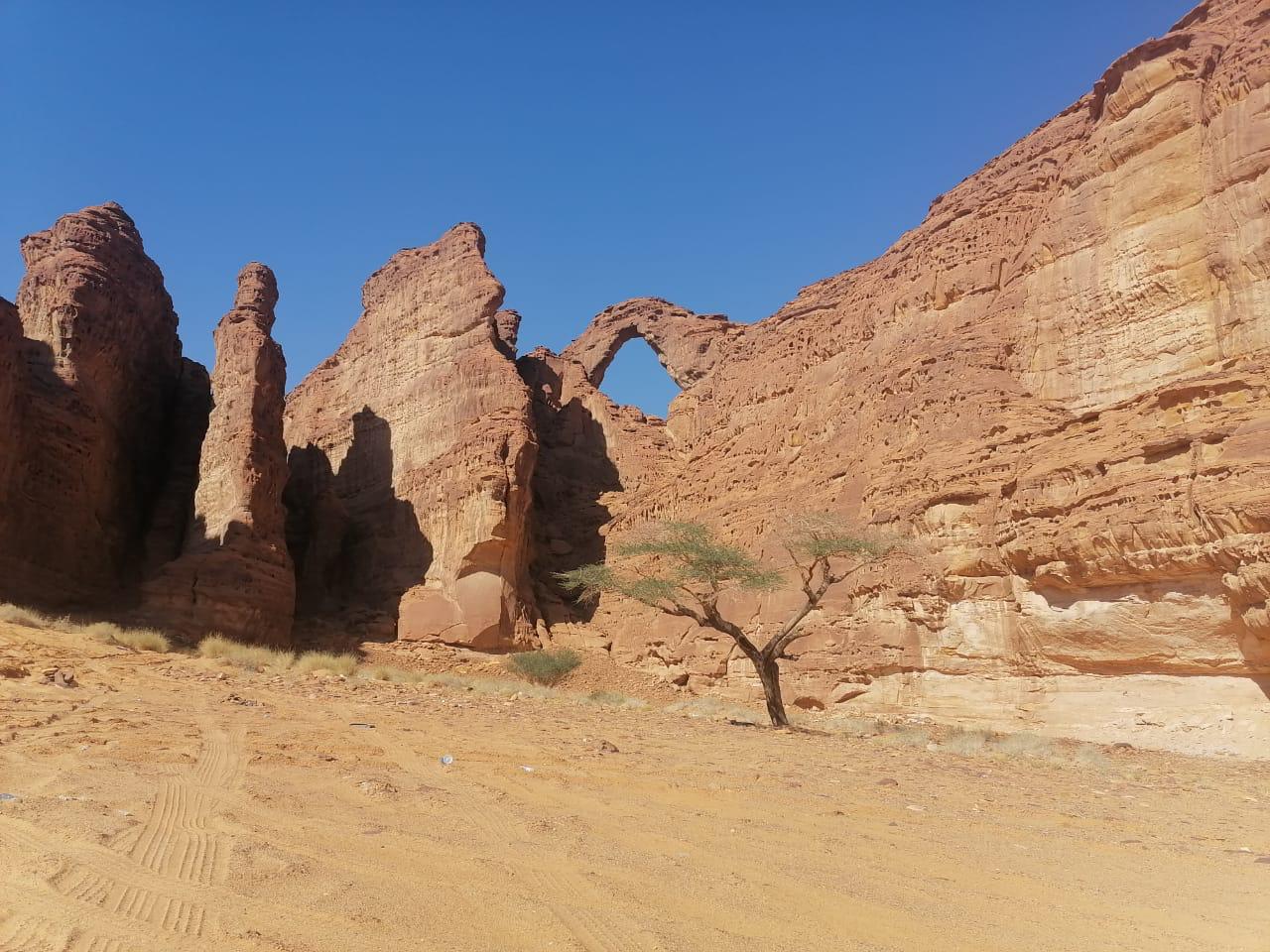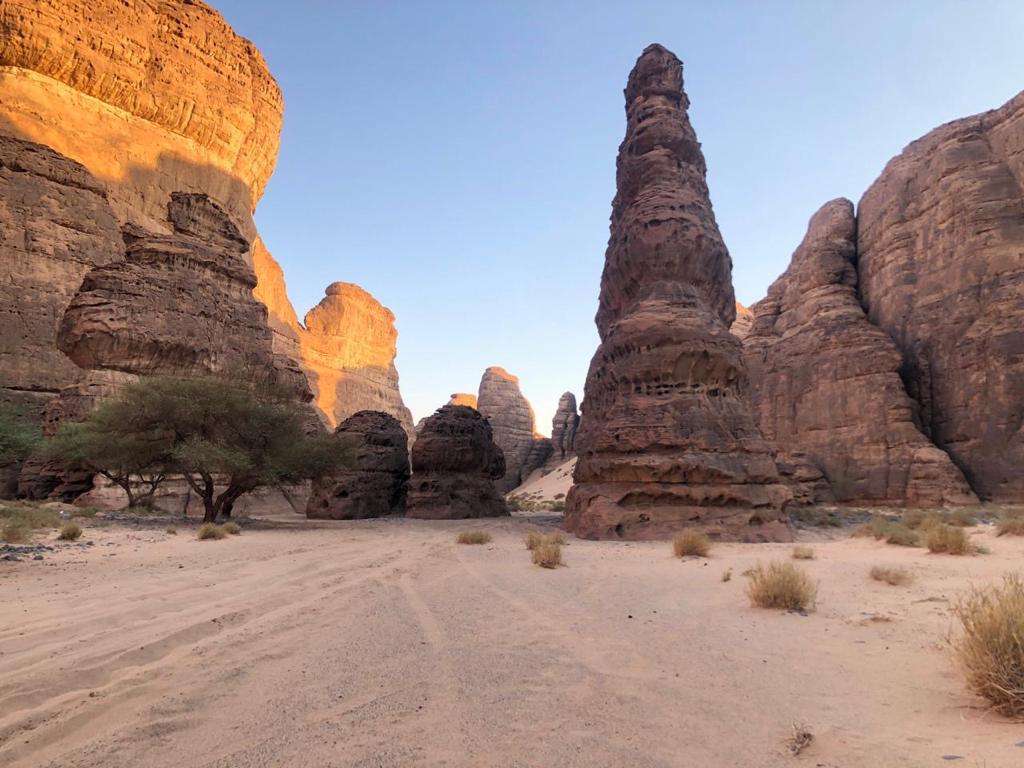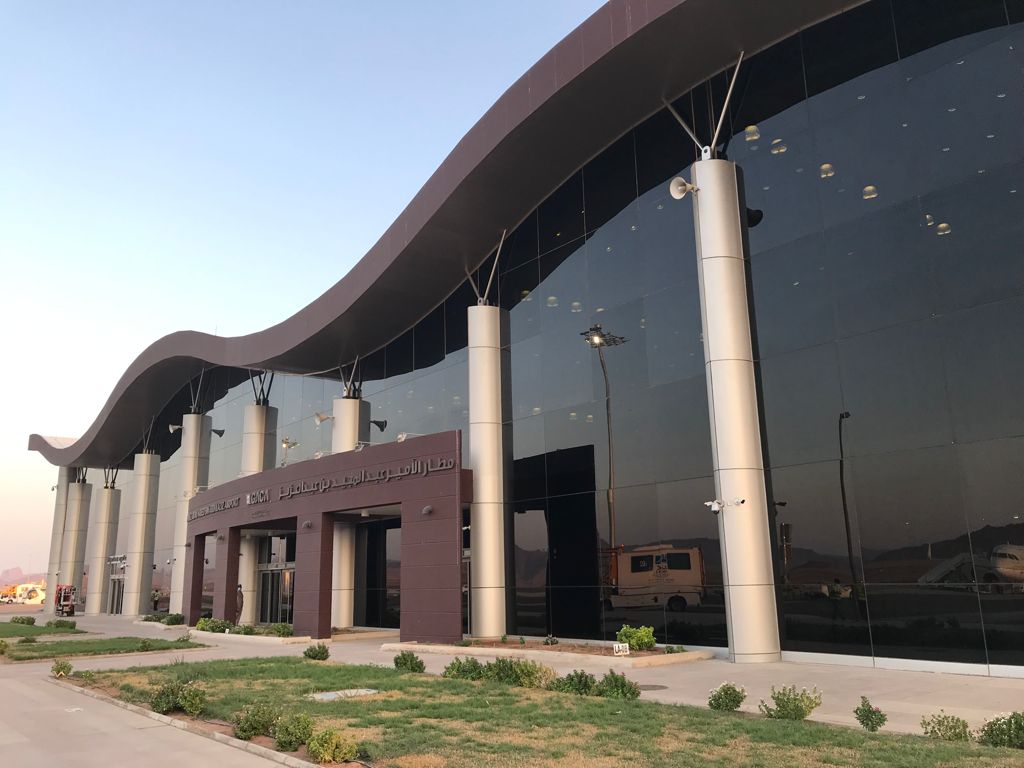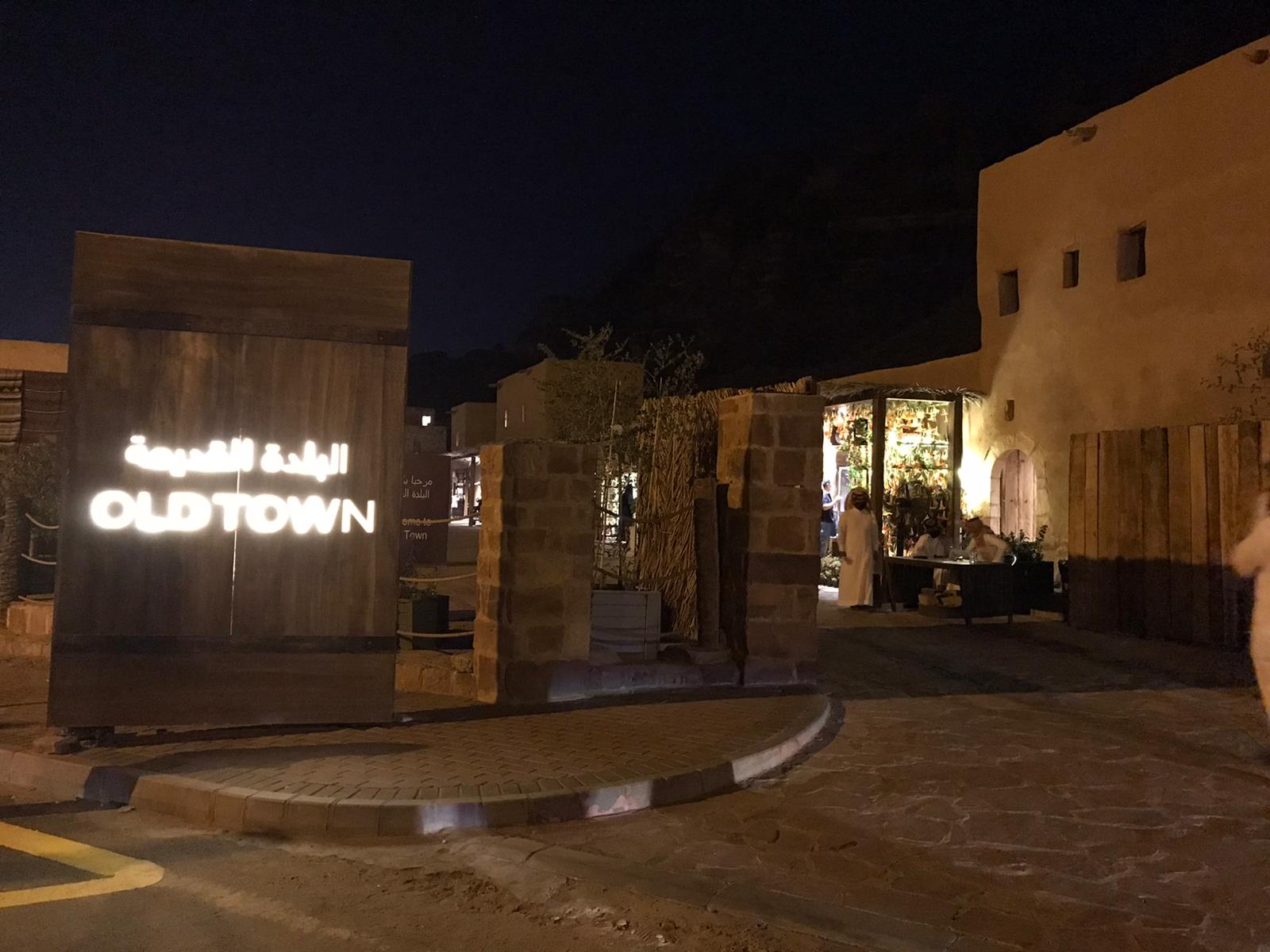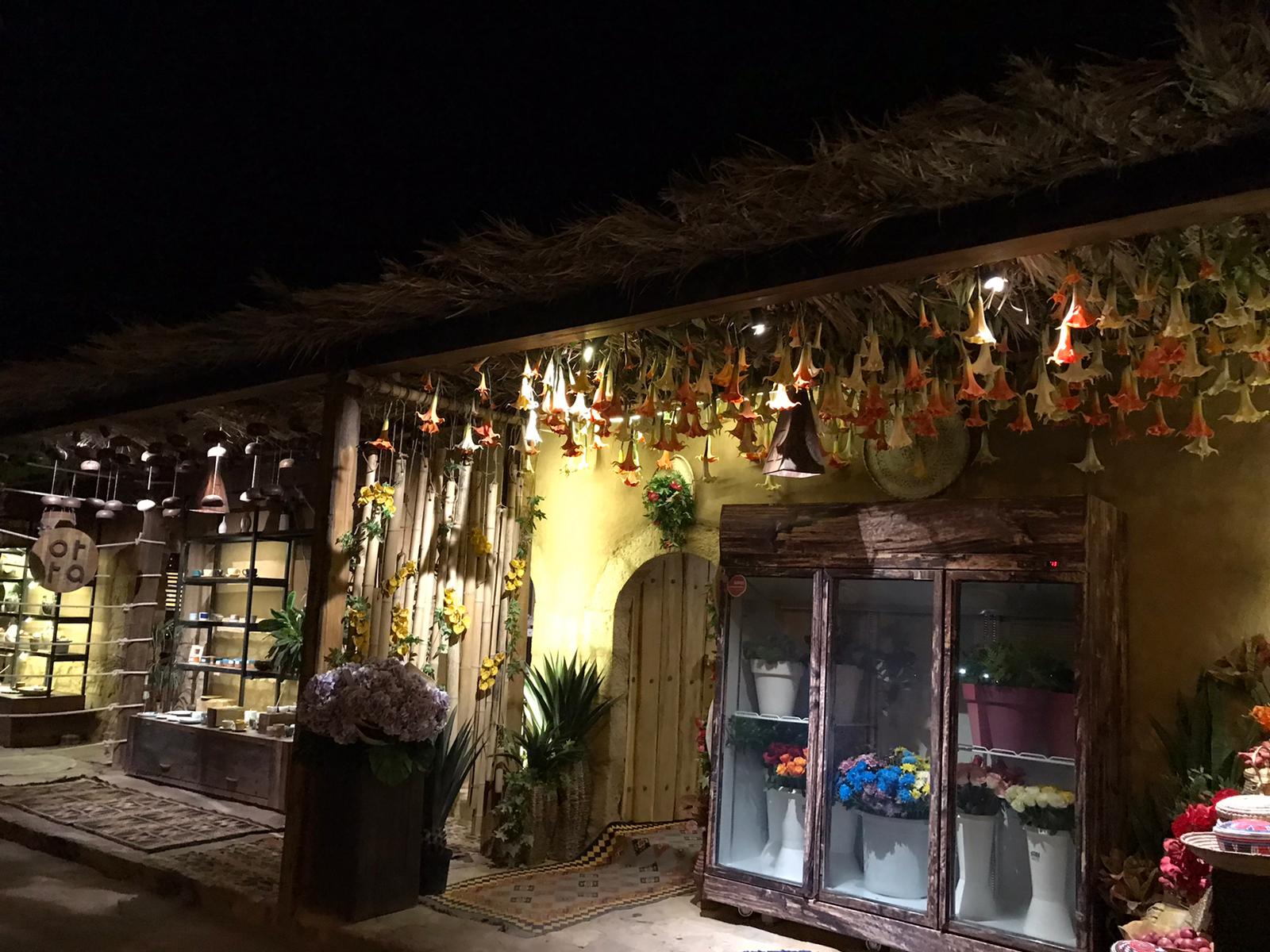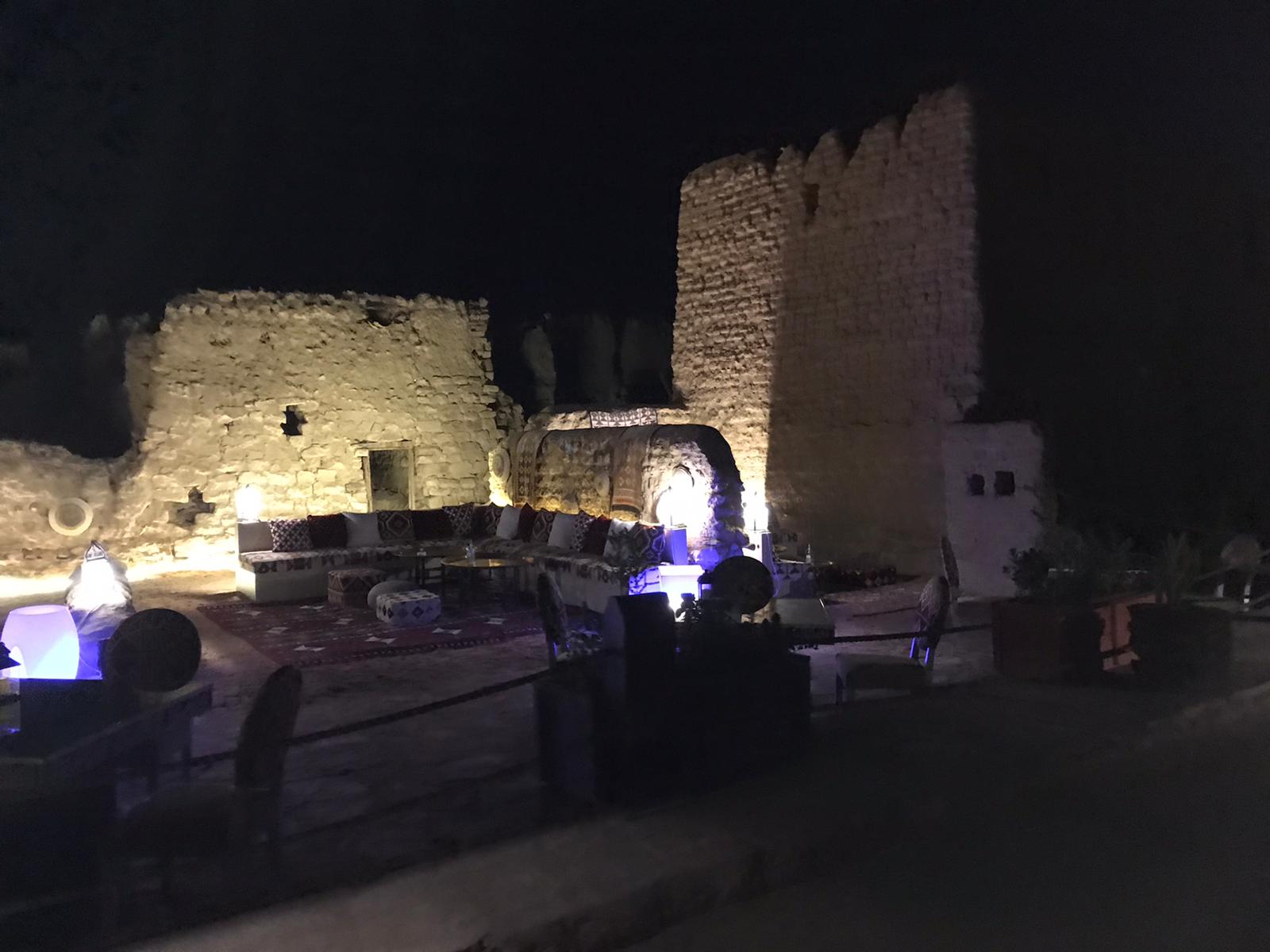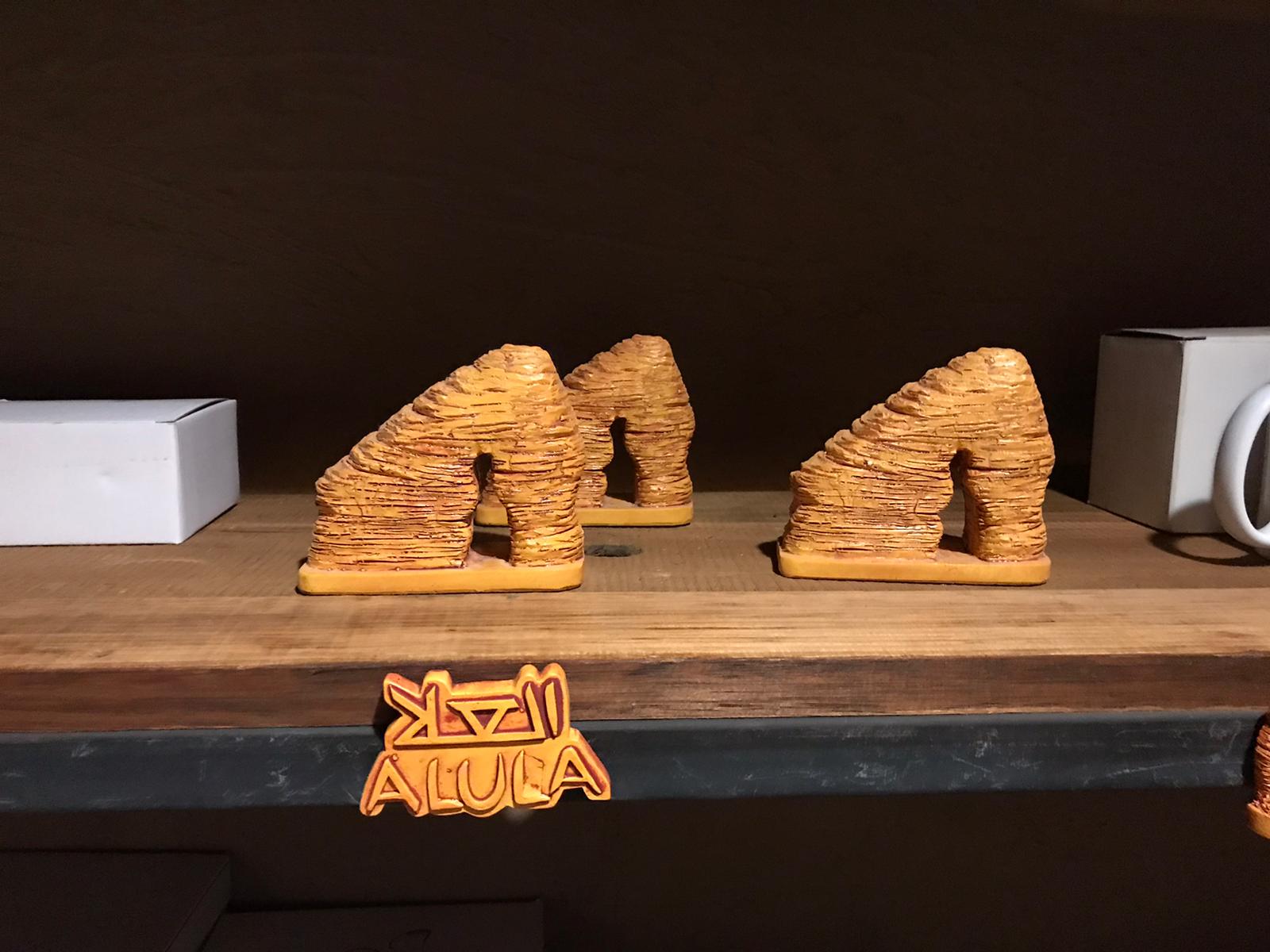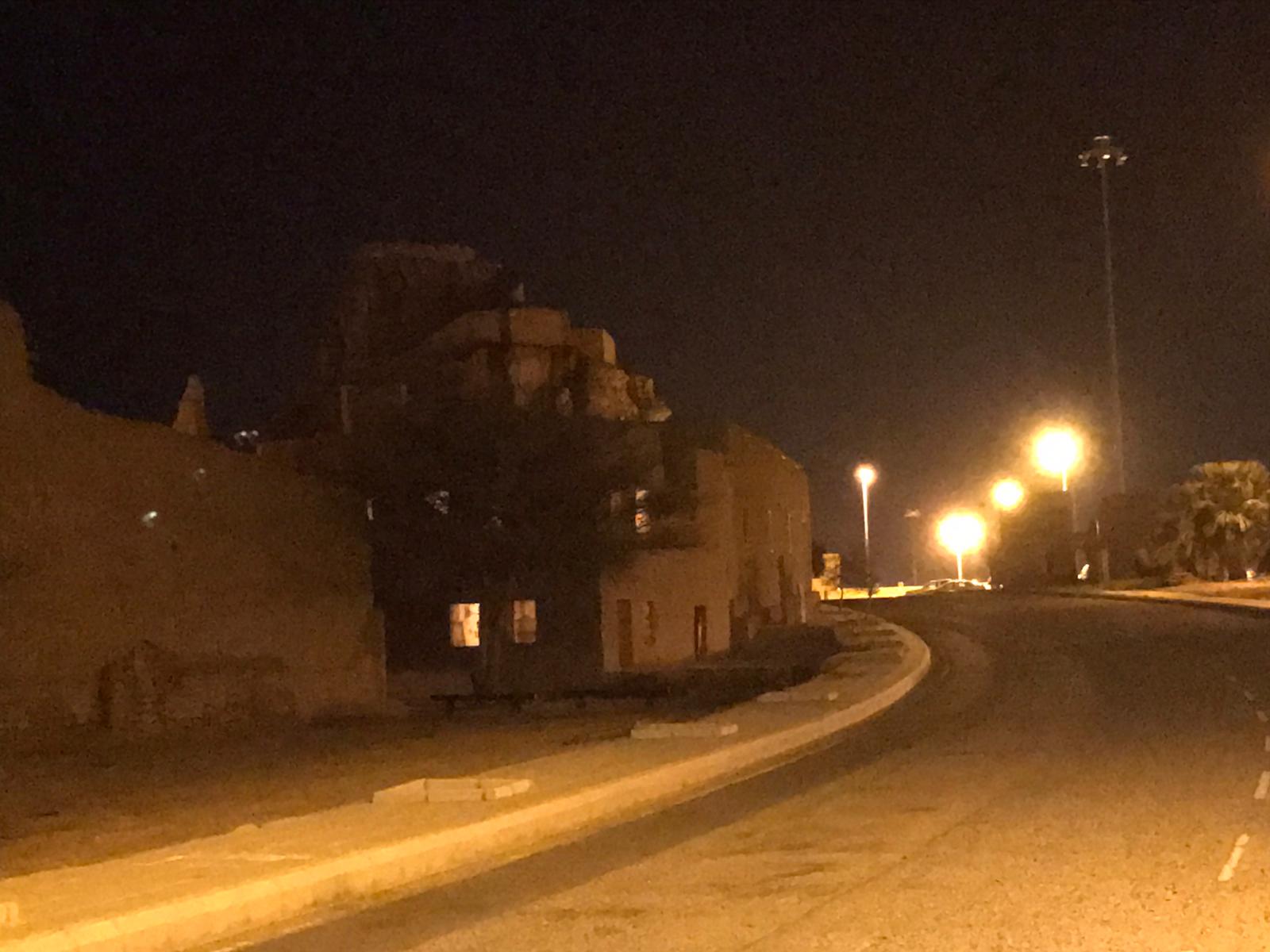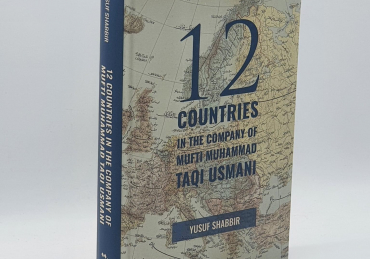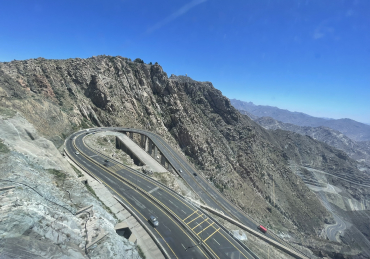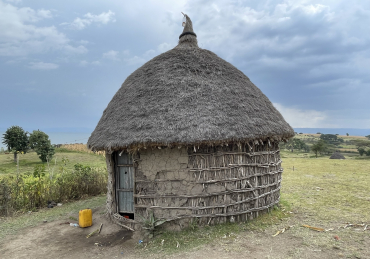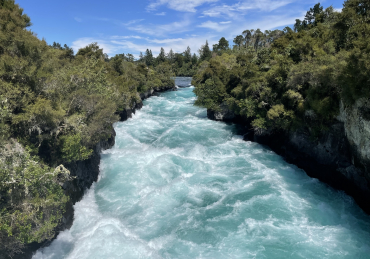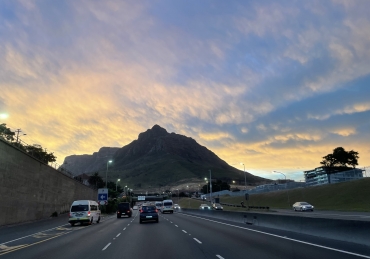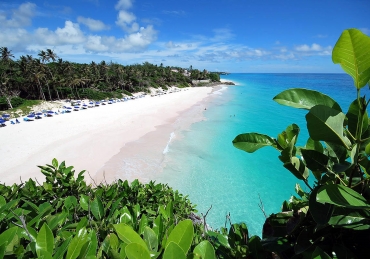In the name of Allah, the Compassionate the Merciful
Since April 2020, Covid-19 has impacted global travel. For over a year, it has not been possible for foreigners particularly for UK residents to travel to the blessed cities of Makkah and Madīnah. The last time I visited the blessed cities was in December 2019 during my onward journey to India with Shaykh Muhammad Sidat. Shaykh Muhammad along with my other cousins including my respected teacher Shaykh Rashid ibn Mawlānā Hāshim are currently in Saudi Arabia. I thus decide to join them and fly out on Saturday 31st July 2021, enabling me to use the PCR test I took in Gibraltar.
Due to Covid-19, there are currently no direct flight options from Manchester to Saudi Arabia. It is necessary to travel from London Heathrow. Mawlānā Nazir, who is married to my cousin sister, kindly drops me to Stoke on Trent where a £1 car hire from Europcar takes me to London Heathrow. I board the 7.20pm Saudia Airlines flight to Riyadh, and from there a connecting flight to Madīnah Munawwarah at 7.30am the following morning. The Ṣalāh facilities onboard Saudia Airlines are unfortunately out of use due to Covid-19.
Immigration and Covid-19 related verification take place at Riyadh and documents are also checked at check in at Heathrow. The following documents are checked and it is strongly recommended to take a printed copy:
- Visa – It is possible to travel on Business Visa. Tourist visa also opened from 1st August and I understand ʿUmrah visa is also open.
- A negative PCR test certificate taken within 72 hours prior to departure.
- Proof of vaccination from the NHS or equivalent. Unvaccinated passengers are subject to seven days’ institutional quarantine and are unable to enter al-Masjid al-Ḥarām or al-Masjid al-Nabawī irrespective.
- Muqeem Portal – Vaccinated travellers must complete a Registration Immunisation Information Form before traveling to the Kingdom through the Muqeem Portal (https://muqeem.sa/#/vaccine-registration/home).
Immediately upon arrival in Saudi Arabia, it is strongly advised to purchase a local sim, and download the following two apps:
- Tawakkalna (توكلنا) – This app is required for entry into hotels, restaurants and also al-Masjid al-Nabawī. It confirms, based on the Muqeem Portal registration, that the traveller is vaccinated and thereby Muḥṣan (immune).
- Eatmarna (اعتمرنا) – This app is required to make bookings for ʿUmrah, performing Ṣalāh in al-Masjid al-Ḥarām along with performing Ṣalāh in Riyāḍ al-Jannah and visiting the grave of the Prophet ﷺ. This app will only work if the Tawakkalna App is activated.
Both apps should be activated immediately upon arrival so that slots can be obtained. Performing Ṣalāh is al-Masjid al-Nabawī does not need to be booked. However, each Ṣalāh in al-Masjid al-Ḥaram needs to be booked separately via the app.
Sunday 1 August 2021
Arrival into the blessed city of Madīnah
Our plane lands in the blessed city of Madīnah slightly early at 9am. Mawlānā Zubair Malik Ṣāḥib receives me. Mawlānā Zubair Ṣāḥib is the younger brother of Shaykh ʿAbd al-Ḥafīẓ Makkī (d. 1438/2017). He studied in Darul Uloom Bury between 1982 and 1986 and graduated from here. He is extremely hospitable and jovial and is a close family friend since his days of study.
From the Airport, we head to a fresh juice shop and from there to a breakfast outlet for some traditional Arab breakfast. Mawlānā’s hospitality and generosity knows no bounds. We then head to Mawlānā’s house where I plan to stay with my cousins. Despite only having slept for two hours on the plane, it is not possible to sleep because the heart is yearning to visit al-Masjid al-Nabawī.
Shortly after midday, we head to al-Masjid al-Nabawī for Ẓuhr Ṣalāh. Our Tawakkalna App is checked to confirm we are vaccinated. Unvaccinated worshippers are not permitted in the Masjid. Ṣalāh takes place with social distancing and despite this, the Masjid is far from being full, although later in the day, the numbers increase for Maghrib and ʿIshāʾ Ṣalāh. Sadly, children are not permitted in the Masjid and I observe some children with their parents performing Ṣalāh outside the Masjid compound.
After Ẓuhr Ṣalāh, I visit the grave of our beloved Prophet ﷺ to offer Salām. This requires a permit via the Eatmarna App. The visitors are socially distanced and the guards move people on swiftly which means that it is only possible to spend a few seconds there. All praise belongs to Allah for these few seconds also. The Baqīʿ graveyard is generally closed to visitors unless if one enters immediately after Ṣalāh with the Janāzas. Thus, upon exit from the Masjid, I convey Salām from outside the graveyard.
Later in the day, after ʿAṣr Ṣalāh, we meet with the Imam of al-Masjid al-Nabawī, Shaykh Dr ʿAbd al-Muḥsin al-Qāsim, who sits in Masjid Nabawī towards the left side of the new extension when facing the Qiblah. He is sat with his laptop like an ordinary person with some students. Shaykh has authored an Arabic Alphabet booklet for children and previously sent copies for free to Africa via Shaykh Muhammad’s charity, Ummah Welfare Trust. He welcomes us, gives us tea and pledges 50,000 copies of the booklet.
After Maghrib Ṣalāh, we visit Riyāḍ al-Jannah. This is the area in the Masjid regarding which the Prophet ﷺ said, “Between my house and my pulpit is a garden from the gardens of Paradise” (Ṣaḥīḥ al-Bukhārī, 1195). Scholars have differed regarding its meaning, which I have detailed in my recently published book ‘Al-ʿIqd al-Thamīn fī Ḥubb al-Nabī al-Amīn ﷺ’ (p.345). Under normal circumstances, it is difficult to get access to this area as it is congested. Currently, due to Covid-19, access to this area requires a permit and access is granted according to the capacity of the area which factors in social distancing. The process is systematic albeit restrictive. Worshippers are given 10-15 minutes to perform Ṣalāh and are thereafter requested to exit the area. When exiting the blessed area, one passes the grave of the Prophet ﷺ, so Salām can be made.
After ʿIshāʾ Ṣalāh, we are invited to dinner by Mawlānā Yunus Randera at his house. Mawlānā was a Khādīm (assistant) of our respected Shaykh al-Ḥadīth Mawlānā Muḥammad Yūnus Jownpūrī (d. 1438/2017) and served him with dedication. He is also my maternal aunt’s brother-in-law. The hospitality of the residents of Madīnah is well known and Mawlānā exemplifies this. It has been a long day, we return to Mawlānā Zubair’s house and rest.
Monday 2 August 2021
Hospitality of the people of Madīnah
In the morning after Fajr Ṣalāh, we visit a Ḥijāmah (cupping) place where Mawlānā Zubair Ṣāḥib and my cousins undergo cupping. This is followed by breakfast and thereafter rest until Ẓuhr Ṣalāh.
After Ẓuhr Ṣalāh, we are invited to Mawlānā Omair’s residence for lunch. Mawlānā Omair Ṣāḥib is the eldest son of Mawlānā Zubair Ṣāḥib who like his father graduated from Darul Uloom Bury in 2000. He served as Imam in Glasgow Central Mosque for many years and also completed his Masters and PhD in Glasgow. He recently moved back to Saudi Arabia and is now Head of the Information Systems Department at a university in Madīnah Munawwarah. He keeps a keen interest on Ḥadīth and jurisprudential matters and has good insight into books and the scholars of Saudi Arabia of various persuasions.
After ʿAṣr Ṣalāh, Mawlānā Omair takes us to the Dār al-Naṣīḥah book shop which is among the larger book shops of the city. Book prices have been on the rise and sometimes it is cheaper to purchase books locally. From here, we visit the Juice World (عالم العصائر) juice shop for some fresh juice, and thereafter meet with Sayyid Khalīl, the maternal grandson of Ḥaḍrat Mawlānā Badr ʿĀlam Mīrtī (d. 1385/1965) who passed away in the blessed city of Madīnah. Sayyid Khalīl is pleased to learn that my grandfather had a close relationship with his grandfather and had in fact offered his support for him to relocate to Saudi Arabia with his family from Malawi.
After Maghrib Ṣalāh, we remain in the Masjid. After ʿIshāʾ Ṣalāh, we go for some shopping in the Taibah Commercial Centre. The shops are generally empty. Shop owners describe the loss they have suffered since the beginning of the pandemic. As a result, many items are being sold at cheaper prices. Thereafter, we head to the residence of my dear friend, Mawlānā Muḥammad ibn Mawlānā Zubair, who was a year after me in Darul Uloom Bury. The weekly Dhikr and Durūd majlis is taking place with dates and Qahwah (Arab coffee) simultaneously. This is followed by dinner.
Tuesday 3 August 2021
Visit to the Fish Market and Dates Garden
We perform Fajr Ṣalāh in al-Masjid al-Nabawī and rest thereafter. After Ẓuhr Ṣalāh, Mawlānā Zubair Ṣāḥib takes us to the fish market, purchases fresh fish and has it cooked with rice, for lunch. After ʿAṣr Ṣalāh, we visit a local shop to purchase some dry mint of the blessed city and other items. We also visit a local dates farm for some fresh ʿAnbar dates.
After Maghrib Ṣalāh, we visit Riyāḍ al-Jannāh and perform Ṣalāh similar to the first day. There are several checks this time and many people are removed at each stage for not possessing the correct permit. We also present our farewell Salām to our beloved Prophet ﷺ whilst supplicating that Allah Almighty return us to the blessed city time and time again, and grant us death here.
After ʿIshāʾ Ṣalāh, I meet with a local dates merchant who kindly gifts me 5kg of very good quality ʿAjwah dry dates, on behalf of a friend in UAE. We also purchase some fresh ʿAjwah ruṭab from another merchant. Fresh ʿAjwah ruṭab has a different taste, which does not harden even when frozen. It is best to retain them in polystyrene boxes so that they are not squashed.
Later in the evening, we have dinner at the residence of Mawlānā Akhlad, the maternal grandson of Shaykh al-Islam Mawlānā Ḥusayn Aḥmad Madanī (d. 1377/1957). Yesterday, we met Mawlānā Akhlad in al-Masjid al-Nabawī where he had extended an invitation to his residence in his unique style with great affection. We had refused initially as we were planning to leave for Makkah al-Mukarramah but the plan changed. At dinner, there are many scholars present including Shaykh Dr Yaqoob Dehlawi, who until recently was a Professor at Madinah University and is currently a voluntary lecturer in al-Masjid al-Nabawī. Once again, the hospitality of the people of Madīnah was on display. The Salīq dish will remain a memory.
Wednesday 4 August 2021
Arrival into Makkah al-Mukarramah and performing ʿUmrah
After Fajr Ṣalāh, we depart from al-Madīnah al-Munawwarah. On route, we stop at Masjid Quba and perform two Rakʿat Ṣalāh. It was the habit of the Prophet ﷺ to visit Masjid Quba every Saturday sometimes walking and sometimes on a mount (Ṣaḥīḥ al-Bukhārī, 1191, 1193, 1194). It is therefore preferred to visit it on Saturday, and if not possible, then any other day.
We travel from here to Makkah al-Mukarramah in Mawlānā Zubair Ṣāḥib’s GMC. The distance between the two cities is 450km. We arrive after Ẓuhr Ṣalāh and check into my elder brother’s room in the Movenpick Hotel. ʿUmrah is performed before ʿAṣr Ṣalāh. ʿUmrah requires a permit via the Eatmarna app and there is a separate entrance into the Masjid for ʿUmrah. Visitors from the Gulf can use the band to perform ʿUmrah and also access al-Masjid al-Ḥarām for Ṣalāh. This band can also be used in al-Madīnah al-Munawwarah for entry into Riyād al-Jannah and for Salām.
Ṭawāf only takes 15 minutes. People are starting to increase but the numbers remain low because tourist visa only opened on 1st August. Under normal circumstances, Ṭawāf normally takes at least 30 minutes. Social distancing rules are in place in Maṭāf, however, they are not strictly enforced in the way that they were enforced previously. Children are not allowed for ʿUmrah or for Ṣalāh in the Masjid because they are not vaccinated. This is sad. Allah’s mercy and assistance descend due to the weak and the young ones.
After shaving the hair and freshening up, I return to al-Masjid al-Ḥarām for ʿAṣr Ṣalāh. There are separate entrances into the Masjid for Ṣalāh. As mentioned already, each Ṣalāh here requires a permit via the Eatmarna App, although the police officers are not strict with the exception of Jumuʿah Ṣalāh. This may change as the numbers of visitors increase.
We spend the time between Maghrib and ʿIshāʾ Ṣalāh in the Masjid on the second floor and thereafter visit the Tazaj food outlet in the Hyatt Hotel building. This should be noted during busy times when the Tazaj in the Hilton building is busy. Entry into buildings is conditional upon showing the immune status on the Tawakkalna App. The App only works when the App is able to access your location all the time. This is undoubtedly invasive but there is no other option.
Thursday 5 August 2021
The al-Maʿlā graveyard
We perform Fajr and Ẓuhr Ṣalāh in al-Masjid al-Ḥarām in the normal manner. Permits are required but the police are not strict. Some people use the previous days’ permit and are granted access. After ʿAṣr Ṣalāh, Mawlānā Khubayb ibn Mawlānā Ḥassān Makkī, comes to meet us. He also takes us to the Abeer Medical Center where we take our PCR test for 200 Riyals. A negative PCR test is required for anyone returning to the UK, the sample has to be taken 72 hours prior to departure. A copy of the Passport photo and visa pages is taken.
Later in the evening after ʿIshāʾ Ṣalāh, we eat dinner at the Raydan Restaurant in Aziziyah. Thereafter, Mawlānā Khubayb Ṣāḥib takes us to the residence of Mawlānā Ṭāhir Makkī, where there is a monthly Dhikr and Nashīd gathering taking place. Mawlānā ʿAbd al-Raʾūf ibn Mawlānā ʿAbd al-Ḥafiẓ Makkī is also present. Some beautiful Nashīds are read in praise and remembrance of our beloved Prophet ﷺ. We also meet Mawlānā ʿUzayr ibn Mawlānā Zubair Ṣāḥib here who is currently residing in Makkah al-Mukarramah, we also met him yesterday outside al-Masjid al-Ḥarām. The Majlis ends upon food.
On our return to the hotel, Mawlānā Khubayb takes us to the al-Maʿlā cemetery. We offer Salām and recite the Qur’an from the outside. The correct pronunciation of the name is with a Fatḥah on the Mīm not Ḍammah, as outlined in an answer which further states:
‘The graveyard is second in virtue after the graveyard of Baqīʿ in the blessed city of Madīnah. Many companions and pious people are buried here. The Prophet ﷺ is reported to have said, “What an excellent graveyard this is, the graveyard of the people of Makkah” (Musnad Aḥmad, 3472). People visiting the blessed city of Makkah should visit this graveyard. Note: Ḥāfiẓ Taqī al-Dīn al-Fāsī (d. 832/1429), has written one of the most comprehensive books on the history of the blessed city of Makkah, entitled: al-ʿIqd al-Thamīn fī Tārīkh al-Balad al-Amīn. In this book, he has collated the profiles of 3548 male and female personalities who passed away in Makkah or resided there for a few years. A cursory glance through the book shows that a significant number of these are buried in the Maʿlāt graveyard. It is worth noting that prior to this, Ḥāfiẓ Taqī al-Dīn al-Fāsī wrote another book Shifāʾ al-Garām bi Akhbār al-Balad al-Ḥarām, a comprehensive book regarding Makkah, which he also summarised in the first section of al-ʿIqd al-Thamīn. In addition to this, he has five other books regarding the blessed city of Makkah, all sourced from Shifāʾ al-Garām.’
We return to the hotel and rest for the night.
Friday 6 August 2021
Final day in Makkah al-Mukarramah
We prepare for Jumuʿah Ṣalāh and head to the Masjid early. There is a dual checking process of the permits, one in the compound and thereafter by the door. Many people are being refused entry including local Saudis. The Jumuʿah Ṣalāh is led by Sheikh Dr. Faisal Jameel Ghazzawi. For some reason, only a small portion of the Masjid is being used for Ṣalāh. The progress on the construction front is also slow. Not much work appears to have occurred over the past 18 months.
After Jumuʿah Ṣalāh, we meet with Iqbal Bhai ʿAlwani, a famous merchant of dates who is active in various charitable activities including the distribution of food and water in both Makkah and Madīnah. He explains that there are many families in both cities who are extremely poor. They is no shortage of food but there are other underlying challenges such as accommodation and health needs. Covid-19 has been extremely challenging for many families.
We perform Maghrib and ʿIshāʾ Ṣalāh in the Maṭāf area which can only be accessed in the state of Iḥrām, and perform Ṭawāf in between the Ṣalāhs. Performing Ṣalāh in the Maṭāf has a different feeling altogether.
After ʿIshāʾ Ṣalāh, we return to Abeer Medical Center to collect our PCR certificates. Earlier in the day, we received the result via text message. However, we are unable to download it electronically. When we collect our certificates, the passport numbers are incorrect on the certificates. They are duly corrected resulting in a short wait.
Saturday 7 August 2021
Unplanned visit to AlUla
Immediately, after performing Fajr Ṣalāh in al-Masjid al-Ḥarām, Mawlānā Zubair Ṣāḥib collects us and we head to Jeddah. Since Wednesday, Mawlānā was in Jeddah at his in-laws where his mother-in-law is not well. May Allah Almighty grant her ʿĀfiyah.
We arrive Jeddah early and Mawlānā takes us to a local restaurant for some Desi breakfast and thereafter to a fresh juice shop. We also visit the Jeddah coast. Jeddah lies on the red sea.
This is the sea the early companions crossed when they migrated to Ḥabashah (modern day Eritrea/Ethiopia). This also appears to be same sea wherein Pharoah drowned when pursuing Prophet Mūsā (peace be upon him) and the Israelites, for whom Allah Almighty created twelve paths on the sea.
We arrive at King Abdulaziz International Airport to fly on the 10.45am flight to London Heathrow. The flight is missed due to some unforeseen circumstances and we have no choice but to book another flight. The next direct flight from Jeddah to London Heathrow is after two or three days which would necessitate a new PCR test. We therefore book the 5.25pm Saudia Airlines flight to AlUla, and from there the 10.20pm flight to Riyadh and from there the 2.40am flight to London Heathrow.
It is worth noting that there is no ZamZam available at the Airport and ZamZam cannot be taken as a separate luggage item. We were unaware of this until after arriving at the Airport, otherwise we would have inserted some small ZamZam bottles into our luggage.
We arrive AlUla at 6.40pm. I had not heard of AlUla previously, but realise as our plane descends that it is very scenic and appears to be a historical place. A quick google search confirms this.
AlUla is a city of the Medina Region in north-western Saudi Arabia. The city is 110 km southwest of Tayma, 300 km north of Medina, and 300 km south of Tabuk. It is home to the first UNESCO World Heritage Site in the country, the Hegra (Madāin Ṣāliḥ) which was built in the era of Prophet Ṣāliḥ (peace be upon him). There is also an old town within the city, which contains mud-brick and stone houses. Earlier in the year, the Saudi Government revealed a $15 Billion masterplan to turn this ancient city into a global culture hub and tourist destination. The www.experiencealula.com/en website states, “AlUla is a place of extraordinary human and natural heritage. We invite you to come journey through a living museum of preserved tombs, sandstone outcrops, historic dwellings and monuments, both natural and human-made, that hold 200,000 years of largely unexplored human history.”
As we arrive at the small Prince Abdul Majeed bin Abdulaziz Airport, there is a small tourism desk where a helpful member of staff offers to call a taxi and tour guide for us. Due to shortage of time and the sun having set, we debate whether we should stay at the Airport or visit the city which is 15-20km from the Airport. We decide to make the most of our transit and call the tour guide.
A local tour guide by the name of Abū Khālid ʿAbd al-Muḥsin, who has three wives, collects us and takes us to the city. It is a scenic route and although the sun has set, it is evident that this is a historical place. ʿAbd al-Muḥsin confirms that this is the region mentioned in the Ḥadīth wherein the Prophet ﷺ passed by the residences of the tribe of Thamūd and said, “Do not enter the ruined dwellings of those who were unjust to themselves unless you are weeping, lest you should suffer the same punishment as was inflicted upon them.” Then the Prophet ﷺ covered his head and travelled quickly until he crossed the valley (Ṣaḥīḥ al-Bukhārī, 4419).
It is night time and we are unable to visit some of the ancient sites such as the Jabal al-Fīl (the elephant rock).
However, the old town is open. ʿAbd al-Muḥsin kindly takes us and we visit some shops and view large ancient rocks and dwellings. This reminds of the verses of the Qur’an in Sūrah al-Ḥijr (80-84) wherein Allah Almighty mentions: “And the dwellers of Al-Hijr (Thamūd) denied the messengers. And We gave them Our Signs, but they were averse to them. And they used to carve houses from the mountains, feeling secure. But the shriek seized them at early morning. So, what they earned did not avail them.”
What interests us the most is the suggestion that the Prophet ﷺ not only passed this city during his journey to Tabuk, but performed Ṣalāh here at a place which was subsequently made into a Masjid. ʿAbd al-Muḥsin and a local shop keeper point the building out to us. We try to access it from the main road; however, the road is blocked and a police officer does now allow us to proceed further. This is all within the old town. We understand that it is accessible during the day. We try to take a picture of the location which is pointed out to us. The area is not very well lit.
On our return to the Airport, we visit a local fresh juice shop and also purchase some food.
Our short visit to AlUla city was worthwhile. We travel to Riyadh and from there to London Heathrow, arriving in the morning at 7.15am. Mawlānā Ashraf has travelled from Blackburn to collect us. We travel home via Leicester and Bolton. The past 24 hours have been adventurous and it is time to rest.
A few days later, we receive the sad news of the demise of Mawlānā Zuhayr ibn Mawlānā Zubair’s new-born baby. May Allah Almighty grant the family Ṣabr Jamīl and make this a means of reward and blessing for them in both worlds.
Travel to Saudi Arabia is no longer easy and straightforward as it was previously. This is likely to be the new norm for the near future. May Allah Almighty protect the Ḥaramayn and al-Masjid al-Aqsa and grant us the tawfīq to visit the blessed cities again and again.
Yusuf Shabbir
9 Muḥarram 1443 / 18 August 2021
Note: To read earlier travelogues, visit the following link: https://islamicportal.co.uk/category/articles/travelogues-articles/.

